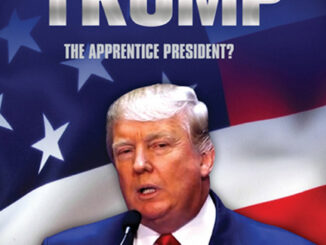MUMBAI (TIP): In one of the largest financing rounds for an Indian internet startup, taxi-hailing service Ola said it has raised $400 million – or around Rs 2,500 crore – led by Russian tech billionaire Yuri Milner’s investment firm DST Global. With this, the four-year-old company is now valued at $2.5 billion, or more than Rs 15,000 crore.
Ola has mopped up about $675 million across five rounds of funding in the backdrop of an all-time high investor sentiment around Indian consumer-facing tech companies.
DST, known for its bets on Facebook and Twitter, is joined in the new round by Singapore’s sovereign wealth fund GIC, hedge fund Falcon Edge, Japan‘s SoftBank, Tiger Global, Steadview Capital and Accel Partners US.
A company statement said on Thursday the capital raised will be used to strengthen Ola’s leadership, expand into smaller markets by adding another 100 cities and pump$100 million into growing TaxiForSure (TFS), which it acquired recently. With this fund-raise, Ola becomes the third most valued domestic consumer internet company after Flipkart and Snapdeal, valued at $11 billion and $5 billion respectively. Just six months back, the taxi service venture was valued at $650 million when it raised funds from Softbank, making it a four-fold jump in its valuation.
People familiar with the fund-raise said Milner’s DST will own 9% in Ola, having put $225 million. SoftBank, which is expected to have shelled out $90 million, will see its stake trim down to 25% from about 32%. Milner had personally invested in Ola last year.
Founded by Bhavish Aggarwal and Ankit Bhati, batchmates at IIT-Bombay, Ola operates across 100 cities at present and, along with TFS, is a clear leader in the taxi aggregation market. The TFS buyout and now this massive raise are expected to give it a huge leg up over Uber which entered India in 2013. Aggarwal said Ola’s vision is that people shouldn’t find the need to own a car.
“We have been able to make this possible for millions of customers in the past four years by creating over a hundred thousand driver entrepreneurs on the platform. With increasing smartphone penetration and immense growth in smaller cities and towns, we will be able to drive the benefits of this on-demand platform deeper into the lives of our customers and partners.”
Recently, Ola launched an on-demand cafe service and is also said to be toying with the idea of entering the highly competitive grocery delivery space. In the US, Uber has also been experimenting with other lines of businesses based on the delivery platform like Uber Movers for shifting house, UberRush, a courier service, and Uber Corner Store for grocery deliveries.
India’s taxi market, estimated at over $10 billion in size, is largely unorganized but is fast changing with the advent of asset-light, aggregator services backed by heavy technology. Over the past year, the three players (Ola, Uber, TFS) have slugged it out with cut-throat competition, guzzling millions in investor money and throwing discounts to get larger market shares. Ola is said to be losing $30 million every month. It claims to be clocking 2 lakh average monthly rides.
DST has been bullish about Asian tech-backed taxi companies as it picked up a stake in China‘s largest taxi-hailing app Didi Dache, which recently merged with its closest competitor Kuaidi Dache, to form a $6-billion transportation behemoth. Buoyed by increased smartphone penetration, the 300-million strong internet user base in India is the next big opportunity for investors after China. Having come to the Silicon Valley as a relative unknown, Milner bulked up the DST portfolio by sinking in millions of dollars behind fast-growing internet firms like Airbnb, Spotify and Zynga, and is today one of the most sought after investors globally. Last year, it led a $210-million financing round in Flipkart, signalling the Russian investor’s interest in domestic tech firms.





Be the first to comment